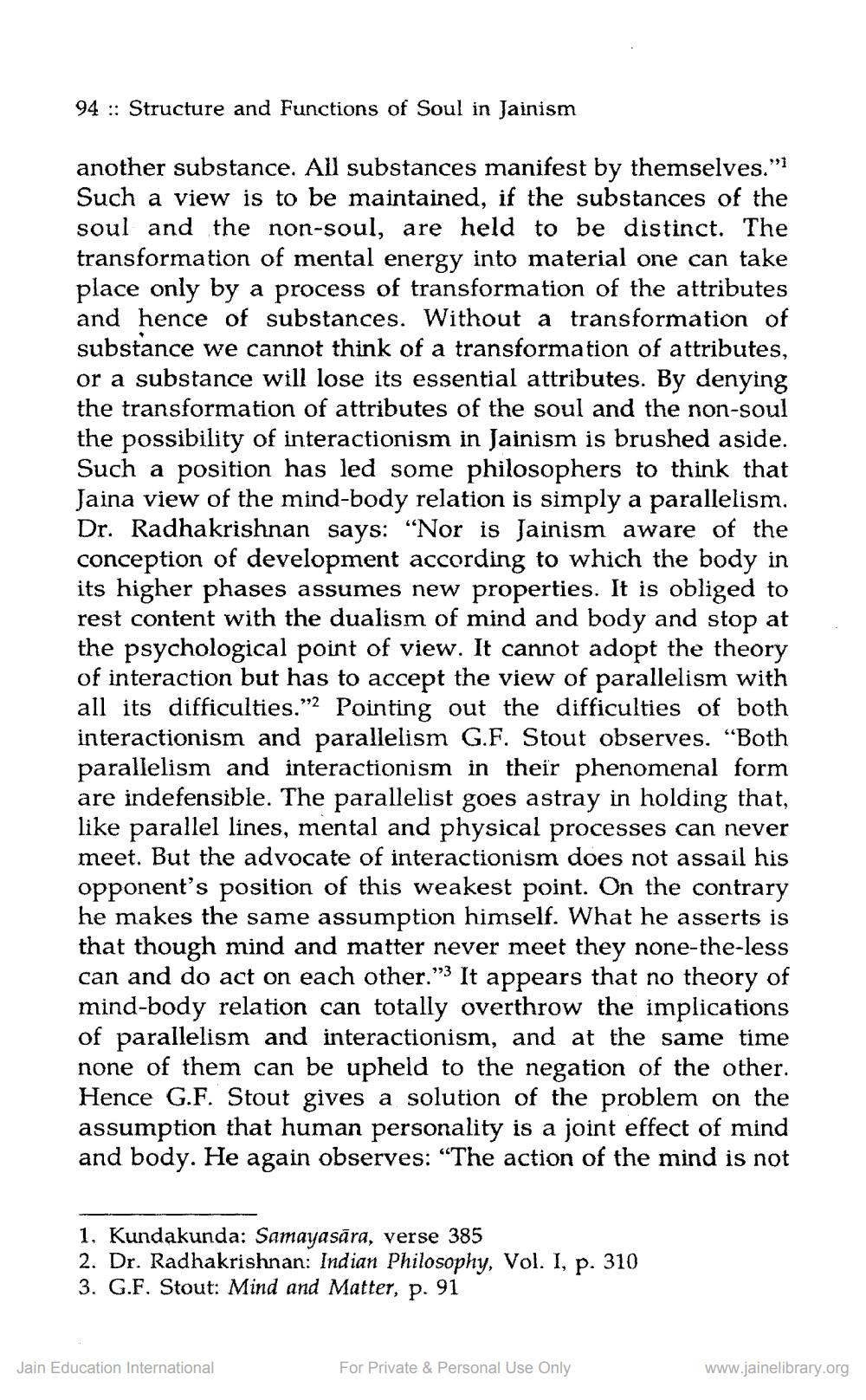________________
94 :: Structure and Functions of Soul in Jainism
another substance. All substances manifest by themselves." Such a view is to be maintained, if the substances of the soul and the non-soul, are held to be distinct. The transformation of mental energy into material one can take place only by a process of transformation of the attributes and hence of substances. Without a transformation of substance we cannot think of a transformation of attributes, or a substance will lose its essential attributes. By denying the transformation of attributes of the soul and the non-soul the possibility of interactionism in Jainism is brushed aside. Such a position has led some philosophers to think that Jaina view of the mind-body relation is simply a parallelism. Dr. Radhakrishnan says: “Nor is Jainism aware of the conception of development according to which the body in its higher phases assumes new properties. It is obliged to rest content with the dualism of mind and body and stop at the psychological point of view. It cannot adopt the theory of interaction but has to accept the view of parallelism with all its difficulties." Pointing out the difficulties of both interactionism and parallelism G.F. Stout observes. “Both parallelism and interactionism in their phenomenal form are indefensible. The parallelist goes astray in holding that, like parallel lines, mental and physical processes can never meet. But the advocate of interactionism does not assail his opponent's position of this weakest point. On the contrary he makes the same assumption himself. What he asserts is that though mind and matter never meet they none-the-less can and do act on each other." It appears that no theory of mind-body relation can totally overthrow the implications of parallelism and interactionism, and at the same time none of them can be upheld to the negation of the other. Hence G.F. Stout gives a solution of the problem on the assumption that human personality is a joint effect of mind and body. He again observes: “The action of the mind is not
1. Kundakunda: Samayasāra, verse 385 2. Dr. Radhakrishnan: Indian Philosophy, Vol. I, p. 310 3. G.F. Stout: Mind and Matter, p. 91
Jain Education International
For Private & Personal Use Only
www.jainelibrary.org




